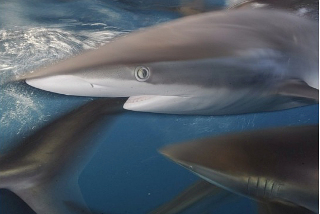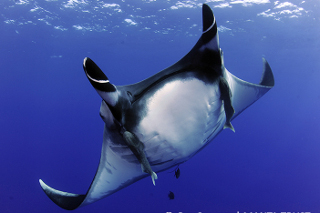 The triennial Convention on International Trade in Endangered Species of Wild Fauna and Flora (Cites) meeting wrapped up in Johannesburg, South Africa, last week. The 17th Conference was attended by delegates from most of the 182 member countries as well as a host of interested parties from international governmental organisations, animal protection groups, wildlife trade proponents, scientists and the media.
The triennial Convention on International Trade in Endangered Species of Wild Fauna and Flora (Cites) meeting wrapped up in Johannesburg, South Africa, last week. The 17th Conference was attended by delegates from most of the 182 member countries as well as a host of interested parties from international governmental organisations, animal protection groups, wildlife trade proponents, scientists and the media.
Cites is a multilateral treaty, with the aim to ensure that international trade in wild plants and animals, does not threaten their survival. During the conference decisions are made detailing specific plants and animals to be listed under one of the three Cites Appendices. The Conference includes discussions and decisions regarding rules of procedure to capacity building, enforcement, measures to combat illegal trade and reduce wildlife products, and the engagement of local communities. With so many interested and invested parties, all with their own agendas, it is remarkable that once decisions are made, most of the member countries agree to implement the them.
The outcome of this year’s conference gave cause for both celebration and disappointment. Fortunately there were more reasons to celebrate, especially for marine life. Silky sharks, thresher sharks and mobula rays were all listed on Appendix II, joining hammerhead, basking, requiem, mackerel and whale sharks that are already listed under the same category.
 The Appendix II listing now provides protection for these species, as well as “look-alike species”, (i.e. species that look similar) for conservation reasons. As Appendix II listed species, these sharks and rays are not currently threatened with extinction, however they are recognised as being in need of protection and the Appendix II listing makes certain provisions for this. All international trade in these species will now require the relevant export permit or re-export certificate. Under Cites, import permits are not required, however certain countries have stricter measures in place and import permits are required. Cites stipulates that specific conditions need to be met in order for the relevant authorities to issue permits, the most important being that trade in a species will not adversely affect their survival in the wild.
The Appendix II listing now provides protection for these species, as well as “look-alike species”, (i.e. species that look similar) for conservation reasons. As Appendix II listed species, these sharks and rays are not currently threatened with extinction, however they are recognised as being in need of protection and the Appendix II listing makes certain provisions for this. All international trade in these species will now require the relevant export permit or re-export certificate. Under Cites, import permits are not required, however certain countries have stricter measures in place and import permits are required. Cites stipulates that specific conditions need to be met in order for the relevant authorities to issue permits, the most important being that trade in a species will not adversely affect their survival in the wild.
There is much to be done to ensure that the decisions made during the conference are implemented. Many liveaboard scuba diving vacations contribute to the protection of these species by way of the park fees that are collected from divers. Book your diving holiday and know that you are contributing to the survival of marine life.